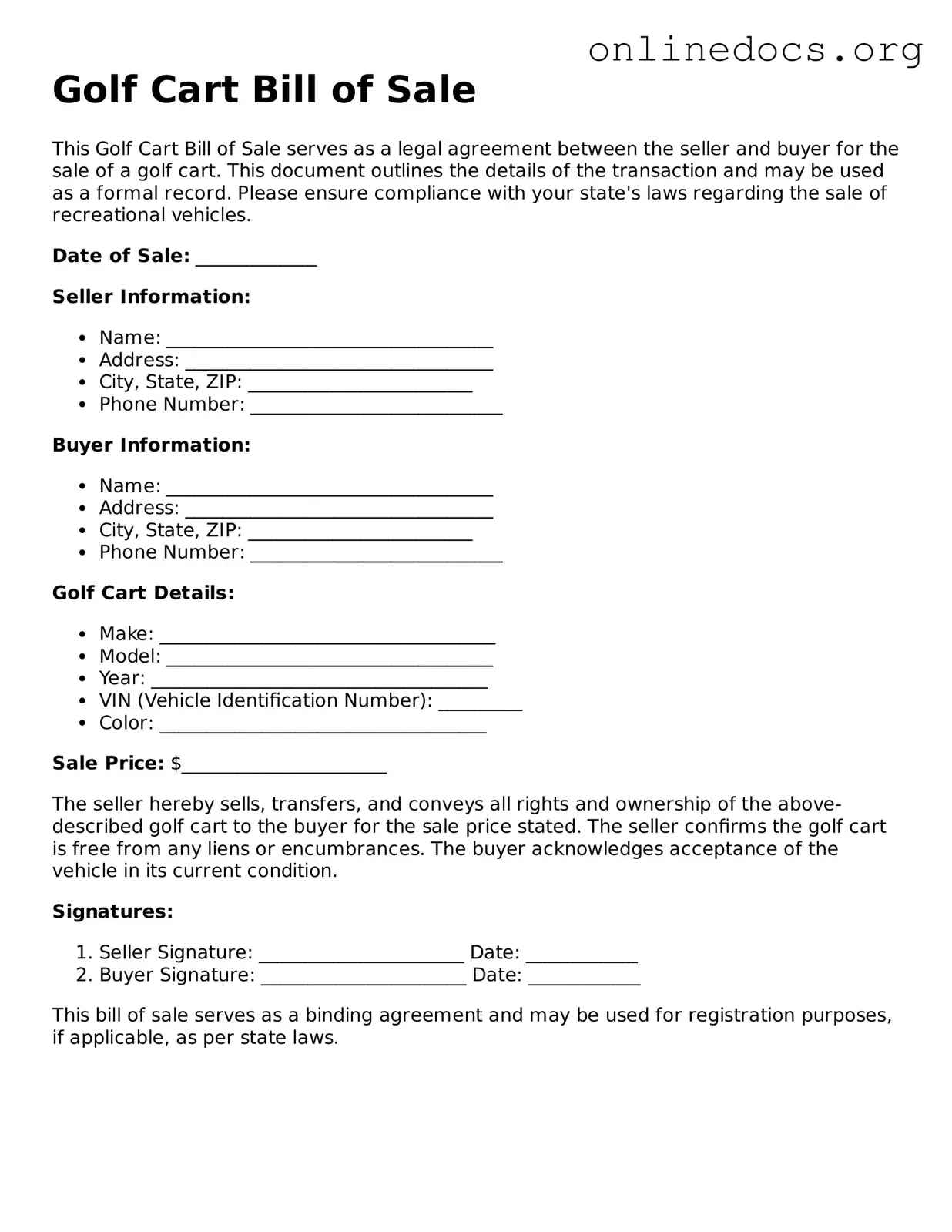When completing a Golf Cart Bill of Sale form, individuals often overlook important details. One common mistake is failing to include the correct date of the transaction. This date is crucial as it establishes when the sale took place. Without it, there could be confusion regarding ownership and liability.
Another frequent error is not providing complete information about the golf cart itself. Buyers and sellers should include the make, model, year, and Vehicle Identification Number (VIN). Omitting any of this information can lead to disputes later on.
People sometimes forget to include the purchase price. This detail is essential for both parties. It helps clarify the terms of the sale and is necessary for tax purposes. Leaving this blank can create misunderstandings about the transaction.
Inaccurate personal information is another mistake. Sellers and buyers should ensure that their names, addresses, and contact details are correct. Errors in this information can complicate communication and legal matters down the line.
Some individuals neglect to sign the document. A signature is a vital part of any bill of sale. It indicates agreement and acknowledgment of the terms. Without it, the document may not hold up in a dispute.
Another common issue is not having a witness present during the signing. While not always required, having a witness can provide additional verification of the transaction. This can be helpful if questions arise later.
People may also forget to provide any warranties or guarantees. If the seller is offering any assurances about the condition of the golf cart, these should be clearly stated. This protects both parties and clarifies expectations.
Failing to keep a copy of the completed bill of sale is a mistake many make. Both the buyer and seller should retain a copy for their records. This serves as proof of the transaction and can be useful for future reference.
Lastly, individuals sometimes do not check local regulations regarding golf cart sales. Different states or municipalities may have specific requirements. Being unaware of these can lead to legal complications.
